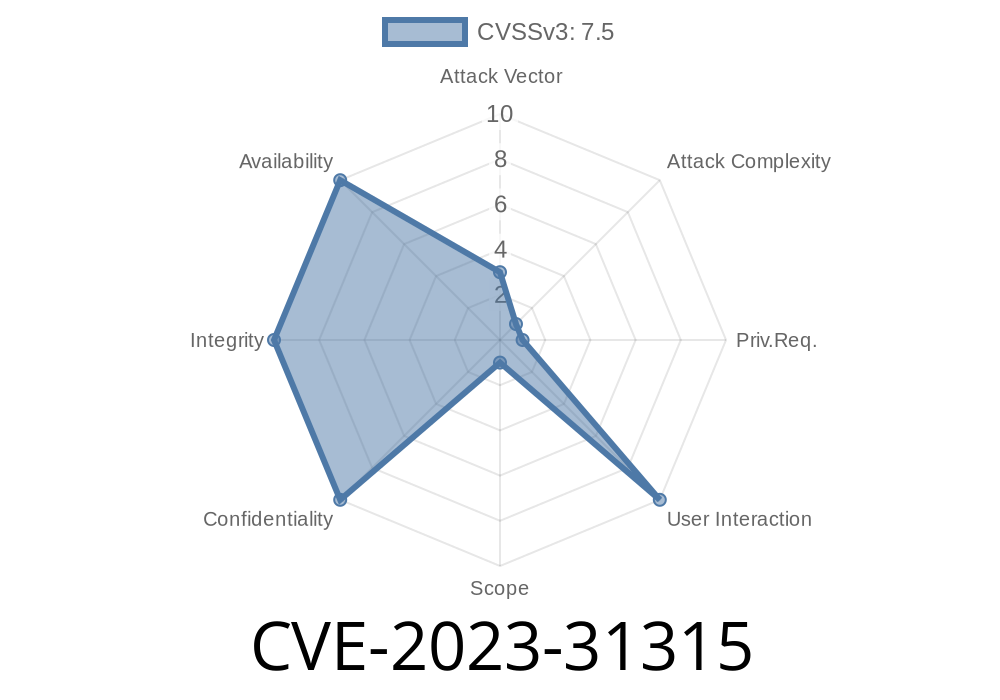In early 2023, an important vulnerability surfaced under the designation CVE-2023-31315. This issue shakes the very heart of hardware-based security: the System Management Mode (SMM) on x86 processors. To put it simply, a problem with how the processor verifies changes to certain registers means a program running with high privileges (Ring , or kernel level) could re-configure SMM, even when the "SMI Lock" should prevent that.
Let’s break down what happened, how it works behind the scenes, and how an attacker might exploit it.
What is SMM and Why is it Important?
SMM (System Management Mode) is a special, highly-privileged mode in x86 CPUs. It runs the firmware’s secure code, handling things like system-wide power management, certain hardware functions, or even patching critical vulnerabilities on the fly. This makes SMM a prime target for attackers: compromise it, and you own the machine at a level even the operating system can’t touch.
So, to protect SMM, CPUs offer a “SMI Lock”. When this lock is enabled, the system should not allow any further changes to SMM critical configuration by the OS or any running program.
Vulnerability Details: Where Things Went Wrong
CVE-2023-31315 describes an "improper validation of model specific register (MSR)” pertaining to SMM. MSRs are special registers for handling hardware-level features in x86 CPUs. Here, an MSR responsible for SMM config remains open to change— even after the SMI Lock should have fenced it off.
Affected Code Path
The problem lives in processor microcode or firmware, and can’t be fixed by standard operating system updates alone.
Here is a pseudocode representation of the oversight
// Pseudocode illustrating improper SMI Lock enforcement
void write_MSR(uint32_t msr, uint64_t value) {
// Check SMI Lock
if ((msr == SMM_CONFIG_MSR) && SMI_LOCK_ENABLED()) {
// Should block write - but missing in some microcode/firmware!
// In vulnerable version: the check below is missing or broken
// return ACCESS_DENIED;
}
// Write proceeds even when it shouldn't
actual_MSR_write(msr, value);
}
What this means: Writing to sensitive SMM config MSRs is not being blocked as it should be. When SMI Lock is enabled, those writes must be denied— but due to faulty validation, they're not.
Who can exploit this?
A malicious program running with kernel (Ring ) access. This means an attacker must first compromise the OS and get high privileges— a nontrivial but not impossible step (think of privilege escalation via a prior bug).
What can the attacker do?
1. Change SMM Settings: By writing to SMM config MSRs, the attacker can re-configure how SMM interrupts work, possibly disable SMI protections, or redirect SMM handler pointers.
2. Hijack SMM Code Execution: The ultimate goal— inject malicious handler code into SMM space so the CPU will run it in SMM, beyond OS or hypervisor's control.
Exploit Example (for demonstration/education)
Here is a theorized code snippet, showing how a malicious kernel driver might escalate to SMM control:
#define MSR_SMM_CFG x123 // Example MSR for SMM Config (actual MSR varies by vendor)
#define NEW_SMM_BASE xA00000 // Malicious SMM handler base
void malicious_smm_takeover() {
// Check if we're running with Ring privileges
if (get_current_privilege() != ) {
printf("Must be run as kernel/root!");
return;
}
// SMI Lock is actually enabled - but due to the bug, write proceeds!
uint64_t new_smm_config = (NEW_SMM_BASE & xFFFFFFFFF000) | ENABLE_SMM_BIT;
// Write is improperly allowed by CVE-2023-31315
__writeMSR(MSR_SMM_CFG, new_smm_config);
}
*Note: __writeMSR is a simplified stand-in. On real systems, it’d use wrmsr instruction.*
Guidance & Mitigation
- Vendors have released patches! Get chipset and BIOS/UEFI updates from your motherboard or system manufacturer:
- Intel Security Center CVE-2023-31315 advisory
- Microsoft Security Update Guide
References & Further Reading
- CVE-2023-31315 MITRE entry
- Intel Security Advisory
- System Management Mode (SMM) Security
- Understanding x86 MSRs
Conclusion
CVE-2023-31315 is a serious, hardware-level bug that could let a determined attacker rewrite the rules of your computer’s most protected areas. If you're responsible for firmware, servers, or endpoint security, make sure SMM/BIOS/CPU updates are part of your routine. Don’t trust SMI Lock status unless your platform is fully patched.
Timeline
Published on: 08/09/2024 17:08:24 UTC
